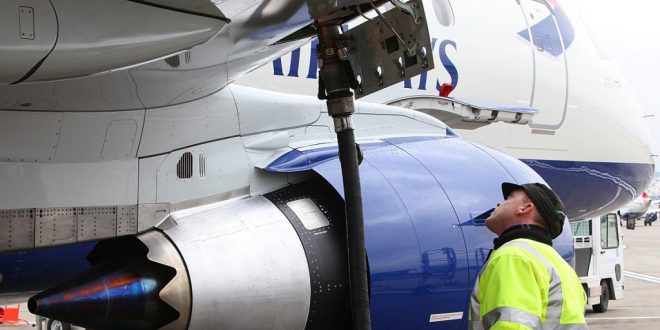Marketers, Airlines Dialogue Over Aviation Fuel Price Hike – MOMAN
The Major Oil Marketers Association of Nigeria (MOMAN) says it is holding talks with domestic airlines for steady supply of aviation fuel for their operations.
Mr. Clement Isong, Executive Secretary, MOMAN, confirmed the development in an interview with the News Agency of Nigeria (NAN) on Wednesday in Lagos.
He said the engagement followed the intervention by the House of Representatives and supervision by the Nigerian Midstream and Downstream Petroleum Regulatory Authority.
The executive secretary empathized with all stakeholders, including ordinary Nigerians who are struggling with the consequences of the increment in the price of crude oil at the international market.
Isong blamed the hike in the price of crude oil and its derivatives such as aviation fuel, petrol, diesel and kerosene on the ongoing hostilities between Russia and Ukraine.
“We understand their pains even the Federal Government that is paying a higher cost to subsidize petrol.
“The rise and fall of oil prices is cyclical. We have been here before and we are hoping that within a short period that international supply of crude will adjust to meet demand and prices will come down to more acceptable levels,” he said.
According to him, the situation can also abate if marketers are able to get foreign exchange at decent rates instead of sourcing from the parallel market.
Isong, however, advised the domestic airlines to change the way they do business to enable them get steady supply of aviation fuel to run their operations.
He urged the airline operators to clear their debts and adopt a pricing formula for procurement of aviation fuel in line with international best practices.
Isong said: “There is aviation fuel in the country. However, the product is expensive. Many of us who have contracts with international airlines have to keep stocks for them.
“Now, international airlines pay for their products based on a pricing formula, so it is predictable. There is no quarrel on the price. It is Platts plus Premium.
“The Premium is fixed. The Platts, which is a price benchmark service for the oil industry, goes up and down depending on the international market price.”
The executive secretary said the pricing template is transparent and predictable.
“I should also add that we buy the product in forex and the foreign airlines pay in forex. So there is no forex risk.
For the local airlines, there are two challenges. First of all they don’t like signing binding contracts based on pricing formula. They prefer running from one marketer to another trying to get products at cheaper rates.
“Secondly, many of them are owing. They are owing millions of naira to the industry not just marketers alone. When they finish from one marketer, they run to another one.”
According to him, the marketers are demanding that the airlines pay up their debts because the burden on the industry is becoming too much.
Explaining further, he said adopting a pricing formula meant that the marketer must commit to a volume of products that would be supplied to the the airline within a specific period.
“The pricing formula means that you buy over a period of one month a certain quantity of products and the airline must pick that product.
“So when they have agreed, you go and buy that volume and you keep for them but if they don’t agree, you can’t keep that volume for them,” he said.
He explained that the domestic airlines had to change the way they did business.
“This is what the Group Managing Director of Nigerian National Petroleum Company Ltd., Mele Kyari has asked them to do.
“There are international best practices that they need to adhere to in running their businesses.
“This include a pricing based formula committing to volumes and also clearing their outstanding debts to ensure smooth operations in the sector.
“If they adopt this method, marketers can take the risk of buying products and keeping for them in our tank farms but they need to commit to volume because that is how the business is done,” said Isong.
The executive secretary said he had nothing but respect for the domestic airlines who had over time invested in leasing more modern aircraft to improve the quality of their service to their passengers.
He added that he equally understood the challenges in charging airfares that were reasonable but allowed them to meet their obligations to their vendors.

